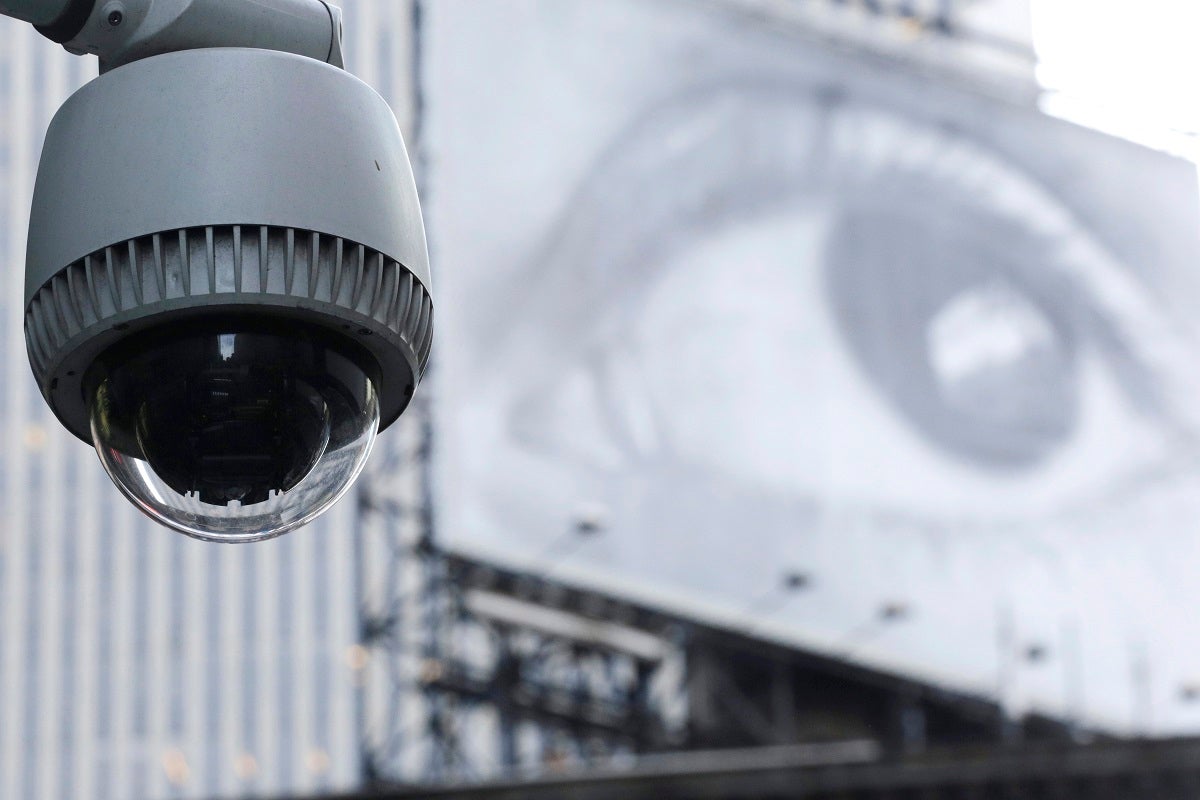Can private cameras protect Delaware from a terrorist attack?

(AP Photo/Mark Lennihan)
Using a network of cameras, Tom Gordon is all set to fight against what he sees as “the terrorist attack” that could be coming to Delaware.
Here is John Watson’s commentary:
Using his expertise as a former police officer and now serving in the position as New Castle County Executive, again, it’s reported that Tom Gordon is all set to fight against what he sees as “the terrorist attack” that could be coming to Delaware.
If and when that occurs, Gordon says he wants to see live private security cameras in every possible location, being monitored at the New Castle County Emergency Command Center.
According to Gordon, this would make northern Delaware among the first metro areas nationwide to adopt a real-time emergency system. He said terrorist attack threats were what made him “move up the scheduled date” of making the system fully implemented by this fall.
He isn’t allowed to talk about any threat level, but he can tell you if you have read the papers, there is an “attack imminent.” Quote. Unquote.
FBI Director James Comey is reported to have said earlier this year that federal officials are investigating Iraqi and Syrian members of the Islamic State in every state in this country. Gordon says that’s why he wants the police to see what’s going on in “real time”, adding that the cameras would also help law enforcement respond to emergencies other than terrorist attacks.
The idea is to link all private surveillance cameras in the county into one network. That way, after an emergency call is made, police will be able to access cameras from the building and sound an alarm. The county is working to first get live feeds from malls, college campuses and religious centers, before increasing the web to other establishments.
Gordon said the county intends to offer an “app” to property owners, which would instantly send images from their cameras to police during emergency situations.
The feeds would be reviewed by a county official, who then decides how emergency personnel should respond – a similar model to 911 dispatchers.
Gordon explained that any business in the county, including those in Wilmington, could participate in the program. “It’s going to be hundreds of thousands of cameras, but it’s very easy to do because we have programmed it into our equipment. You just need to know the IP addresses.”
As usual, Gordon is reported to be way ahead of most police departments nationwide. Washington D.C. and Atlanta, currently have similar systems and others are in various stages of planning private camera-linked networks, including the Delaware State Police.
That all sounds very good, but Steve Newton, New Castle County Chair of the Libertarian Party of Delaware and Jennifer Lynch, an attorney at the Electronic Frontier Foundation, voiced concerns about all of this, saying it could eventually grow beyond its emergency-only mandate.
They are concerned it could morph into everyday use by law enforcement and drift toward a “police state mentality.” Newton went on to say there have been cases where police departments “have used such information to infiltrate, harass and even arrest members of peaceful protest groups.”
While all of that will come up for discussion from time to time, it occurs to me that this is not how it will work if an even headed thoughtful process is used. Kathleen MacRae, executive director of the American Civil Liberties Union of Delaware says, “If it’s only being used during a general emergency, then we don’t have an issue with it.”
Right. Public location cameras. Not in your backyard.
Dr. James Magee, Professor of American Constitutional Law at the University of Delaware, agrees with Ms. Mac Rae. He says that in a mall walkway or parking lot you expect to be seen out there and it’s constitutional for the state to view what’s happening there.
So far, it’s not easy to convince businesses and others to link into the county’s camera live feed. Efforts with both the Islamic Society of Delaware and University of Delaware, each of which have large camera surveillance systems, have failed.
Christiana Mall is also on the waiting list, looking for more information about the programs financial requirements before signing on. Steve Chambliss, the general manager said “we don’t have enough information to know yet.”
But I think they could change their minds with a better understanding of how it works.
Apparently the only business that agrees with the camera program is Arbor Management. An apartment holding company that owns 14 complexes in New Castle County.
The administrative office has a screen showing four landscapes of the grounds making the residents feel safe, because the police can see it too, and link with federal authorities, like the FBI, if needed.
Gordon is quoted as saying, “…in the event of a terrorist attack, it’s the federal authorities that are going to take the lead. We rely on them because they have a great amount of intelligence.” He says the county’s “app” will essentially be a panic button for people in camera connected buildings to push when there is an emergency. “I think businesses will sign on when we get the “app” working”.
And it could all happen as early as this September.
County Executive Tom Gordon wants to protect us from having an attack happen here. If he keeps this up he might run for governor next time.
I would vote for him. Would you?
John Watson is a long time observer of Wilmington and Delaware from his perch as a radio talk show host. You can write him: JohnWatson1506@comcast.net
WHYY is your source for fact-based, in-depth journalism and information. As a nonprofit organization, we rely on financial support from readers like you. Please give today.

